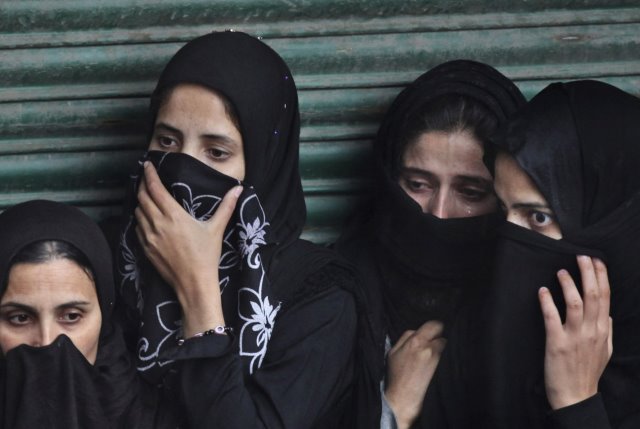
Divorced Muslim Woman Entitled To Alimony For Life: HC
In a landmark ruling, the Allahabad High Court on Wednesday said a Muslim woman has the right to receive maintenance from her divorced husband not just till the completion of the ‘Iddat’ period, but for the rest of her life.
The alimony should be such that she can live the same life as she had been living before the divorce, the court ruled.
‘Iddat’ is a custom that bars Muslim women from stepping out and meeting relatives for four months following the death of their husbands.
The court set aside the order of the Principal Judge Family Court, Ghazipur, granting alimony only till the ‘Iddat’ period, terming it illegal. It said the Ghazipur court had given the order without properly perusing the statutory provisions and evidence.
“Under Section 3(3) of the Muslim Act, 1986, an order can be passed directing the former husband of the divorcee to pay to her such reasonable and fair provision and maintenance as deemed fit and proper having regard to needs of the divorced woman, her standard of life enjoyed by her during her marriage and means of her former husband,” the court observed.
“The word “provision” used in Section 3 of the Muslim Act, 1986 indicates that something is provided in advance for meeting some needs,” the court said.
“In other words, at the time of divorce the Muslim husband is required to contemplate the future needs and make preparatory arrangements in advance for meeting those needs,” the court said.
“Reasonable and fair provision” may include provision for her residence, her food, her cloths, and other articles,” the court said.
“In the case of Danial Latifi and another (supra), in Para-28, Hon’ble Supreme Court has fairly interpreted the provisions of Section 3 with regard to fair provision and maintenance and held that “it would extend to the whole life of the divorced wife unless she gets married for a second time,” the court observed.
The court observed that Section 4 deals with the Order for payment of maintenance, — Notwithstanding anything contained in the foregoing provisions of this Act or in any other law for the time being in force, where a Magistrate is satisfied that a divorced woman has not re-married and is not able to maintain herself after the iddat period, he may make an order directing such of her relatives as would be entitled to inherit her property on her death according to Muslim law to pay such reasonable and fair maintenance to her as he may determine fit and proper, having regard to the needs of the divorced woman, the standard of life enjoyed by her during her marriage and the means of such relatives and such maintenance shall be payable by such relatives in the proportions in which they would inherit the property and at such periods.”
The HC said under Section 3(2) of the Muslim Women (Protection of Rights on Divorce) Act, 1986, a divorced woman can file an application for maintenance from her ex-husband before a magistrate.
The court ordered the magistrate concerned to pass an order in three months on alimony, and it then, it ruled that the ex-husband will pay an interim alimony of Rs 5,000 per month to his divorced wife.
The judgment, in favour of the plea by Zahid Khatoon, was delivered by a division bench of Justice SP Kesarwani and Justice MAH Idrisi.
The HC made it clear that a Muslim woman was entitled to maintenance from her ex-husband even after the customary ‘Iddat’ period.
If she is not being given maintenance, she has the right to approach the magistrate, the court said in its judgment.
Zahid Khatoon wed Noorul Haq Khan on May 21, 1989. After their nikah (marriage), the husband got a job in a post office.
However, he divorced his wife on June 28, 2000, and got married a second time two years later.
His ex-wife filed an application under Section 3 of the Muslim Women Protection Act before the Judicial Magistrate, Junior Division, Ghazipur. The case was transferred by the district judge to the Family Court.
She also filed an application under Section 125 of CrPC. During the hearing for the same, the magistrate ordered the ex-husband to pay her Rs 1,500 per month till the period before the divorce.
The revision petition filed, challenging the order, was dismissed and there was no petition filed against the same.
The family court, after examining the evidence and testimony, ordered the ex-husband to pay Rs 1,500 monthly for a period of three months and 13 days. (ANI)
Read More: http://13.232.95.176



